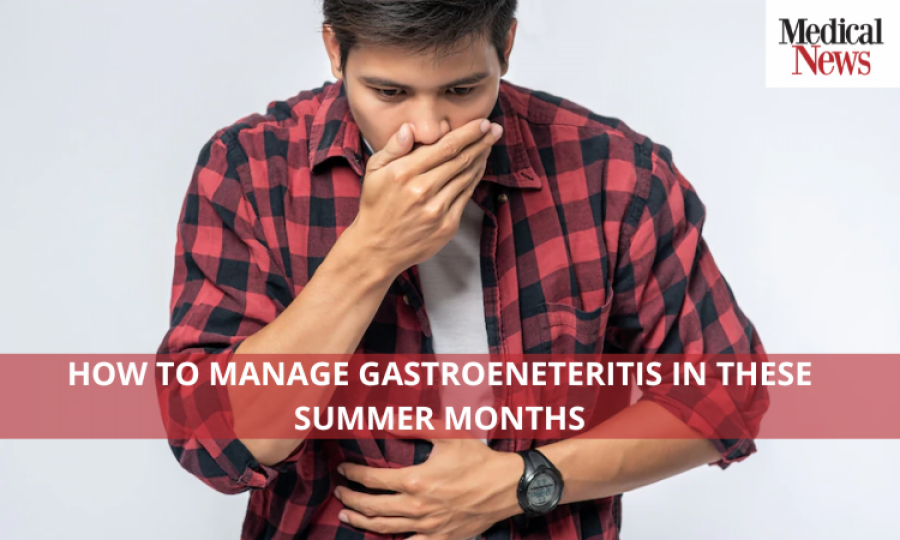How to Manage Gastroenteritis in These Summer Months?

Gastroenteritis is an inflammation of the stomach lining or small and large intestines. Most episodes of gastroenteritis are infectious, although medicine and chemical toxicity may also cause it (e.g., metals, plant substances). Person-to-person or zoonotic transmission may also occur.
Each year, one in six persons in the United States suffers from foodborne disease. Several symptoms include anorexia, nausea, vomiting, diarrhoea, and abdominal pain.
However, polymerase chain reaction (PCR) tests and immunoassays are increasingly being utilized to diagnose the disease. Although certain parasitic and bacterial illnesses need particular anti-infective medicine, the treatment is symptomatic.
Gastroenteritis in Summers
It's more common in the summer for people to have gastroenteritis caused by food poisoning since it's easier for certain germs to grow in hot weather. Your stomach and intestines will be infected and inflamed if you have gastroenteritis. Food poisoning is the most frequent cause of diarrhoea, lasting five to seven days, and is the most prevalent cause of gastroenteritis.
There are a wide variety of bacteria and viruses that may cause gastroenteritis. Still, most cases are caused by food or water that has been contaminated by these microorganisms (Rotavirus, Norovirus, Adenovirus, among others). If a person with diarrhoea does not thoroughly wash their hands after using the toilet, an infection may be spread from one person to the next.
Ways to Manage and Prevent Gastroenteritis
Gastritis is very contagious. Those exposed to the virus should wash their hands and avoid others. The patient should be released after 48 hours without symptoms (diarrhoea and vomiting). Watery diarrhoea, vomiting, nausea, fever, muscle discomfort, and headache are common.
Diarrhoea and vomiting may cause dehydration, especially in children. Electrolytes may aid in some instances. Probiotics are a popular way to replace and regulate intestinal flora.
Unmanageable nausea, vomiting, and diarrhoea may need medication.
To prevent gastroenteritis, clean thoroughly. After using the bathroom, wash your hands before handling food, pets, or the garden. Extra attention is needed while taking white meat, eggs, and raw or processed foods.
Someone with gastroenteritis shouldn't share towels and restrooms.
Bring bottled water while travelling. In dirty regions, provide ice-free drinks and bottled water.
However, food poisoning or other prevalent illnesses need the examination of microorganisms in the patient's faeces. Moreover, stool cultures are also used to diagnose gastroenteritis.
Advertisement
Trending
Popular
Hair loss: Discovery uncovers key stem cells that could reverse ...
-
Broccoli sprout compound may help lower ...
11:31 AM, 25 Feb, 2025 -
Gas Pain vs. Heart Attack: How to tell ...
09:00 PM, 22 Feb, 2025 -
Coconut oil supplement shows promise ...
08:00 PM, 20 Feb, 2025 -
How diet affects cancer risk: Latest ...
08:00 PM, 12 Feb, 2025



